What's in this article?
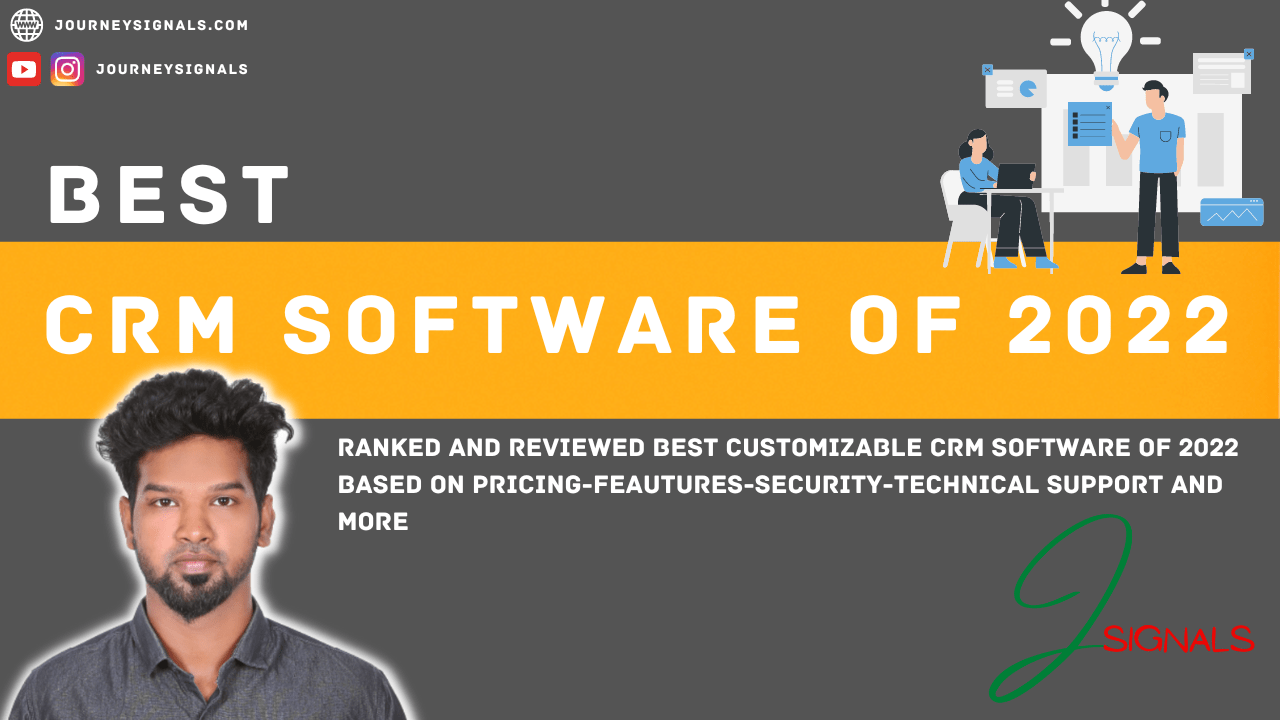
To achieve optimal levels of sales and progress in one’s relationship with a client, it is crucial to choose the appropriate customizable CRM software.
The finest customizable CRM Software can assist you in accomplishing a variety of tasks, such as maintaining customer data and gathering information about potential customers.
In this article, I provide you with a ranking and assessment of the 10 best customizable CRM software, as well as my top 3 recommendations, so you may choose the solution that is most suitable for your needs.
Best Workflows
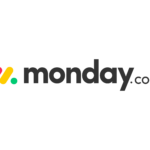
Monday CRM
Create specific processes to monitor every stage of the sales cycle, from lead generation to after-sale support.
Best Sales & Automation

Pipedrive CRM
A CRM that focuses on sales and utilizes AI to handle leads and sales while automating monotonous chores.
Because there is now more competition for leads and sales, sales teams and company owners need a more efficient method to follow clients through every step of the buyer experience.
Choosing the most appropriate customer relationship management software will come into play at this point.
The most customizable CRM software will provide you with invaluable insight into the behaviors of your consumers and the things they need from you.
You’ll be able to maintain tabs on the activities you need to do to ensure the satisfaction of your clients and make more sales.
Additionally, it makes corporate procedures more streamlined and easy to understand for any employee that deals directly with clients.
Your company’s bottom line should increase over time as a result of using CRM software.
What is the Best CRM Software?
Here are my top recommendations for the most effective customer relationship management (CRM) software, based on my experience working with a large number of different CRMs at a variety of tech businesses and evaluating both small company and corporate CRMs.
Salesforce – Best Enterprise CRM Software.

When it comes to customizable CRM service providers, Salesforce is well recognized as an industry leader.
It runs in the cloud and caters to all of a company’s departments, including sales, service, marketing, analytics, and more.
Additionally, the company provides a popular essentials-level platform that is well suited for use by small and expanding organizations.
Salesforce provides a comprehensive collection of individualized solutions for sales, marketing, and customer support teams for businesses that are prepared to advance their CRM capabilities and dig further into their use.
Key Features:
Opportunity Management – Using the “opportunity management” feature, you may increase your number of successful agreements by pinpointing the most promising prospects.
Contact Management – Management of Customer Interactions allows you to keep tabs on important details, including past interactions, messages, and social media comments.
Sales Performance Management – Manage sales performance by establishing and regularly reviewing performance metrics.
Use Visual Workflow to easily share and keep tabs on changes made to your files using Visual Workflow.
The “First Feed” function lets you prioritize the content that most interests you (based on your settings).
User Experience:(customizable crm)
A highly visual dashboard provides you with all the information and figures you need to view at a glance, while at the same time giving you the opportunity to deep dive into the specifics with only a few clicks.
The UI of Salesforce is very user-friendly and straightforward to use. Because the style is so neat and well-organized, it is quite easy to locate the information that you want.
It is now much simpler to maintain a connection to your data regardless of where you are, thanks to a variety of applications that may run on mobile phones, tablets, and even smart watches.
Pricing:
Because Salesforce provides such a wide selection of items, the pricing is subject to change.
However, the prices for the membership plans range from €25 per person per month all the way up to € 75 per user per month for the most costly plan (both billed annually).
You may also get in contact with them to discuss a strategy that is tailored to your needs.
Pros and Cons in salesforce:
Pros in salesforce:
- Uses a cloud-based system, so it’s accessible from any device.
- offers solutions for a wide range of non-CRM business requirements
- You may modify it to meet the specific requirements of your company.
- Advanced tools for group work, including a community of developers and an app marketplace
- Fantastic efficiency and effectiveness in all processes.
- Accessible through phone, email, and ticket system around the clock.
- Precision and efficiency at the highest degree of automation and individualization.
- There’s no risk for 30 days!
- Shares compatibility with Linux, Windows, Mac, and Android.
- Tools for corporate information and sales force automation lead management.
- Comprehensive assistance for several languages and currencies.
- Help you save time and energy by sending out emails in bulk.
Cons in salesforce:
- Businesses who want an on-premises setup will be disappointed.
- There is no real-time help available.
- Costs might quickly add up on a monthly basis because of the high number of paid extras.
- Employees may struggle with excessive personalization, which might lead to further training and additional expenditures.
Monday – Best CRM Workflows.(customizable crm)
Monday.com Sales CRM is an excellent option for businesses who engage in apparently never-ending sales chores and complicated initiatives as it provides a superb solution for project management.
The core work management platform offers crucial functions that save time and improve organization.
You have the ability to personalize your workflows on Monday.com, which enables you to keep track of every step of the sales cycle, from the production of leads to providing assistance once a transaction has been made.
For example, you may want to keep track of whether or not you have provided assistance to a customer after they have completed a purchase.
If you want to personalize anything at all that is linked to your sales funnel, procedure, or customer data, Monday.com is your best option.
Because it is so simple to obtain a holistic view of both your customers and your sales data, Monday.com is an excellent choice for companies that want to maintain a close watch on their sales process.
This is because the platform makes it possible for businesses to keep a close eye on their sales process.
In addition, the dashboard on Monday.com gives you a bird’s eye view of everything, which makes it easy to see any potential roadblocks or challenges in the sales process.
Key Features:
- Maintain a clear view of your sales pipeline at all times to identify issues as soon as they arise.
- convenient flexibility for recording any and all sales activity
- This is an excellent tool for businesses who wish to track their sales funnel and performance in detail.
- Monday.com also has a smartphone app for when you’re on the move.
- Integrate Monday.com to your existing suite of programs and utilities.
User Experience:
Displaying information in a manner that is simple to comprehend may be accomplished via the use of graphs, pie charts, bar charts, and tables.
The user interface is clean and uncomplicated, which makes it very easy to locate the features you want.
Additionally, you may get additional information about any component of the interface by clicking on it.
You will be able to swiftly assign tasks and follow up with clients if you are able to determine which salesperson is working on which transactions and have that information readily available.
The Monday.com Sales CRM provides you with user-friendly technology to assist your success, whether you wish to conduct in-depth research with customer data visualization capabilities or want a specialized dashboard to meet your particular communication requirements.
The main task management platform stands out due to the deliberate design it has, as well as its capacity to function and grow with any workflow.
Pricing:
You will get the opportunity to test out Monday.com’s full suite of services for free for a period of 14 days to see whether or not it is a suitable match for your business.
After that, the following are the paid plan options (for a minimum of three members on a team):
- Individual: €0 free forever
- Basic: €10 / seat / month
- Standard: €14 seat / month
- Pro: €24 seat / month
- Enterprise: Contact them for a custom plan
Pros and Cons in monday CRM:
Pros in Monday CRM:
- This system allows you to get information from your users, organize it visually, and utilize that information to guide your choices.
- Working in tandem with your team in real time will allow you to do more in less time.
- Helpful for organizing and managing tasks.
Cons in Monday CRM:
- When compared to other products, Monday Work Docs’ search features fall short.
- Workflow development is made more complex than it needs to be by the extensive flexibility available.
Pipedrive – Best for sales-focused
Pipedrive is an AI-powered customer relationship management (CRM) platform that focuses on sales and automates repetitive operations in order to better manage leads and revenues.
They currently service over 90,000 users, and their platform has handled over 24 billion dollars in transactions since it was launched.(customizable crm)
Pipedrive provides the greatest value for all of the capabilities that your company needs to sell more while working less, and it does so at an affordable price.
The platform places an emphasis on giving you control over the sales process, which in turn gives you the flexibility to expand your company to its maximum potential.
You will be able to focus your attention on your company rather than the program itself thanks to how simple it is to use.
Key Features:
- Lead management software may be used around the clock to monitor forms, chatbots, and other sources of leads.
- With Visual Sales Pipelines, each sales person or team member may have their own visual sales pipeline with specific phases (hot, warm, and cold).
- With Reconciling Conversations,your calendar may be adjusted on the go while a complete contact history keeps tabs on all your communications (phone calls, emails, and more).
- Pipedrive is accessible from your mobile device, and you may connect your phone to other sales applications to boost your revenue.
User Experience:
When it comes to the user interface, Pipedrive is yet another excellent platform.
You may receive as much or as little information as you choose using dashboards that vary from basic to complicated.
Examine your income, activity, deals won and lost, and more, all in one convenient location.
There are a number of reports available to you that detail the state of your business’s sales that can be accessed from the left-hand menu.
Pricing:
Pipedrive provides customers have full access to all of its features, including round-the-clock customer assistance, during the platform’s 14-day free trial period.
- Essential: $14.90 / user / month
- Advanced: $24.90 / user / month
- Profesioanal: $49.90 / user / month
- Enterprise: $99 / user / month
Pros and Cons in Pipedrive:
Pros in Pipedrive CRM:
- Can easily add deals, their values, the odds of winning, and the dates when they end.
- You can get any piece of customer information from an unlimited number of custom fields.
- Estimates of revenue and recurring revenue can be kept track of with custom reports.
- Individual sales calls, emails, demos, and events can all be kept track of in activity reports.
- Reports on lead source data show where your leads came from (organic, direct, SEM, social, outbound sales, etc.)
- “Sales Assistant” suggests ways to improve your performance and automate tasks to save you time.
- Offers an easy-to-use interface and a workflow that is based on deals.
- Good mobile apps that sync your calls and emails.
Cons in Pipedrive CRM:
- Limited features for the price
- No separation between lists of new leads and lists of contacts
- Filters need more options so you can really dig deep and get the data you need.
- With so many changes, the platform can feel a bit overwhelming at times.
- Product Changes
- If there isn’t a native dark mode, you might feel uncomfortable if you use the platform for a long time in low-light conditions.
HubSpot CRM – Best Free CRM with Marketing Tools.
The HubSpot CRM is a full-featured marketing suite, with the CRM software being its most popular product.
The suite’s name comes from the company’s initials.
Because of its helpful features and capabilities that save sales professionals time, HubSpot CRM is an excellent choice for these professionals.
In addition to this, it is an excellent choice for marketing teams since it enables them to record, monitor, and expand their new leads inside a database.
They provide a portion of their program that may be downloaded completely free of charge, in addition to the option to upgrade and have access to the full array of marketing tools that they provide.
Key Features:
- Send free, tailored emails to your leads and monitor their progress with in-app analytics statistics.
- You can link your inbox to their CRM, and all of your contacts will sync and be arranged in one central location.
- Over 300 Integrations – Integrating new tools into your current technology stack is simple.
- Use help desk requests, time-saving applications, and real-time chit-chat bots to quickly resolve client issues.
- Insights into Sales Activity and Individual Performance for Sales Managers Sales executives may see the complete sales funnel.
User Experience:
By utilizing the visual pipeline, you can easily see where each lead is in the process, and you can swiftly add or amend deals and contacts with just a few clicks.
In addition to this, it is simple to move transactions through your pipeline more quickly and to nurture your prospects with tailored emails.
Pricing:
A free plan is available for HubSpot CRM, and it comes packed with many useful features right out of the gate. After that, you will have the option to switch to one of their paid plans, which are as follows:
- A starter costs $40 per month. All of the functionality of the free plan, plus more forms, up to 50 email list segmentations, $1000 in ad management, 10 reporting dashboards, and limited conversational bots.
- Professional ($800/month): All of the capabilities that are available in the free and basic plans, plus 2,000 email list segmentations, $10,000 in ad management, 25 reporting dashboards, and complete chatbot functionality. Additional features like phone assistance, content strategy, an SSL certificate, and a blog are accessible to you after you upgrade to this plan.
- The Enterprise plan costs $3,200 a month and includes all of the features listed above (along with higher-tier choices), in addition to user roles, event-based segmentation, predictive lead scoring, API calls, multi-touch revenue attribution, webhooks, and other features.
Pros and Cons in HubSpot CRM:
Pros in HubSpot CRM:
- A no-cost basic package with flexible paid upgrades.
- Live chat, landing pages, email marketing, ad management, document management, and more are all a part of their sales and marketing suites.
- List segmentation and email marketing tools at no cost.
- Access to all group correspondence in one convenient location with a team email and chat inbox.
- A high-quality form creator for gathering prospect details.
- Ad management platforms that allow for the measurement of return on investment for sponsored advertising on platforms like Google, Facebook, Instagram, LinkedIn, and others.
Cons in HubSpot CRM:(customizable crm)
- Choosing one of the numerous features to use might be challenging.
Freshworks CRM – Smartest Sales Features.
Freshworks CRM, originally known as Freshsales, is a customer relationship management system powered by AI that can score leads, track email activity and collect emails, among other things.
One of its most notable qualities is that it gives you a comprehensive perspective of your company from every angle.
To help one-person businesses save time and increase efficiency, Freshworks developed a platform that centralizes all of their resources.
Simply click the “Get Started” button to begin generating leads from your website’s visitors immediately.
This program is in the cloud, so you may access it from any internet-connected device.
You can boost client involvement and conversion rates now that you have access to some of the most promising leads for your company.
Freshworks analyzes your demands using AI. This integrates flawlessly with Hubspot, Meta, Klenty, and Calendly.
This app gathers your contact info. Summarize recent actions, email campaigns, and more. You may examine customer support data using the analytic function.
Freshworks Academy can help you become certified. Along with the training school and blogs, customer support is nearby.
Key Features:(customizable crm)
Lead Management: Offers ways to turn potential leads into paying customers.
Deal Management: This shows you where the deal is in the sales funnel in detail. Also helps you manage and organize each step in the funnel and increase your chances of conversion.
Tracking and Lead Scoring: With an AI feature built in, you can rank and score leads to find out which ones are most likely to turn into sales.
Auto Lead Assignment: The CRM makes it possible for hand-picked leads to be automatically sent to salespeople.
Web-to-lead Smartforms: When someone fills out a web form on your website, they are automatically added to your database as a lead.
User Experience:
Freshworks CRM is an excellent choice to consider if you would want to have a visual representation of the whole of your client lifecycle in front of you at all times.
Because you are able to see every contact a client has had with your business, you are in a better position to rapidly fix any difficulties that they may be having.
It is also possible to see all of the different integrations that take place along the way, which makes it simple to pinpoint any difficulties that may arise.
Pricing:
There are four different pricing options available for Freshworks CRM, ranging from $0 to $69 per user each month (when billed annually).
- Free: $0 / user / month
- Growth: $15 / user / month(billed annually)- $18 / user / month(billed Monthly)
- Pro: $39 / user / month(billed annually)- $47 / user / month(billed Monthly)
- Enterprise: $69 / user / month(billed annually)- $83 / user / month(billed Monthly)
Pros and Cons in Freshworks CRM:
Pros in Freshworks CRM:
- Offers automation at a high level and smart workflows.
- Integrations with MailChimp, Zapier, Calendar, Piesync, Segment, and many others.
- You can use RESTful APIs to read, change, add, and delete information from the help desk.
- Lead segmentation based on behavior.
- Scores for leads based on their traits and actions.
- Sends welcome and voicemail messages that are tailored to each person.
- GDPR-compliant.
- Free trial for 21 days.
- Excellent customer support via phone and email.
- Known for having one of the best mobile CRM apps.
- Tracking events (tracks previous communication to plan the future approach).
- Very adaptable.
Cons in Freshworks CRM:
- Some more features, like salary slips, proof of income tax payments, and so on, could be helpful.
- Sometimes it takes a long time to load.
- Changes to the configuration may be needed more often than with some other CRMs.
Zoho CRM – Best CRM For Small Business
With the help of Zoho CRM,Increase your business’s conversion rates, get a bird’s eye perspective of your company’s operations, and keep tabs on the most important sales and marketing opportunities.
One of the most widely used applications on our list is Zoho CRM, which now has more than 150,000 users all across the world.(customizable crm)
Zoho is made to efficiently and effectively boost leads, speed up sales, and assess success.
Zia, the AI-driven assistant, forecasts leads and transactions, pinpoints prospective clients, and guides huge sales teams to success.
Zoho’s gamification elements, which promote healthy competition among remote workers, also make it a compelling choice.
No matter where your team members are situated, you can turn every lead, call, and transaction into a trophy that fosters a competitive and encouraging sales environment.
Key Features:
- Advanced CRM Analytics – The Advanced CRM Analytics feature integrates your data and generates insights that can be put to use.
- AI-Powered Sales Assistant – Zoho’s AI-Powered Sales Assistant provides sales teams and reps with the ability to make choices based on client profiles and identify abnormalities.
- Performance Management – By using functions like gamification, reporting, sales forecasting, and territory management, you will be able to get the most out of the money you invest in your small company.
- Sales Enablement – Helps you produce price quotations and access sales scripts.
- Process management – Process management gives the team the ability to map out each stage of the sales process using a sales builder and processing rules.
User Experience:
Building a bespoke and user-friendly platform with Zoho is a breeze because to the platform’s configurable interface and the hundreds of connectors that are available.
Helpful features such as the Feeds notification module are conveniently located, easy to access, and may be globally emphasized across the dashboards of all members of the team.
Other useful tools include SalesSignals, which monitors interactions with customers across a variety of channels and alerts members of a team when important and time-sensitive prospective leads are available for them to pursue as soon as possible.
Pricing:
Standard, Professional, Enterprise, and Ultimate are the names of the several price tiers that Zoho offers.
- Standard: $14 / user / month(billed annually)
- Professional: $23 / user / month(billed annually)
- Enterprise: $40 / user / month(billed annually)
- Ultimate: $52 / user / month(billed annually)
Pros and Cons in zoho CRM:
Pros in zoho CRM:
- You can get help with customer service by phone, live chat, email, or social media.
- High-level automation is provided.
- Very easy to change.
- There are more than 100 third-party integrations, such as LinkedIn, Zapier, Google and Outlook email integrations, and more.
- Easy to expand.
- Free trial for 15 days.
- has a version for mobile phones (for paid plans).
- Make sure that data is safe, correct, and in line with regulations.
- Up to three users can use it for free.
- Provides holistic calendar management.
- Offers data import/export.
- The predictive sales feature can help with data enrichment, figuring out how people feel about emails, and more.
Cons in zoho CRM:
- A steep slope for learning
- The most sophisticated capabilities can only be accessed by paying for a more expensive plan.
- On the weekend, you won’t get the same level of service as during the week. Premium and Enterprise levels of service are available, but come at an additional cost to your plan.
- Zia AI, upon which many excellent features depend, is reserved for the most expensive Enterprise and Ultimate tiers.
- There are daily use restrictions on a lot of functions, such email alerts and webhooks.
Salesflare – Best CRM For Automation.
The majority of customer relationship management systems rely on you and the rest of the sales team to manually enter data, but Salesflare is not one of those systems.
Because it brings together all of the information automatically, using it makes maintaining an up-to-date CRM a piece of cake.
Key Features:
- Visual, drag-and-drop sales pipelines: Establish an unmistakable picture of your sales funnel, make it possible to easily update it, and monitor your success. You are free to construct whatever number of pipelines you see fit.
- Email and website tracking: Know how your consumers are engaging with your emails and what they are reading on your website by using tracking software for both your emails and your website. Keep an eye on the emails that are being sent through Gmail, Outlook, and Salesflare.
- Email signature sync: Stop manually copying and pasting information from email signatures into your CRM and start using email signature sync instead. The program will automatically recognize and decipher signatures in order to bring your contacts up to date.
- Data about companies and contacts that is automatically enhanced: You should begin entering the name of a business, and then choose the appropriate search result. It then moves on to the next step, which is to pre-fill the firm profile with information that is readily accessible to the public.
- Email templates & workflows: Automate the sending of repeated emails by making use of templates in Salesflare and Gmail. These templates are driven by shortcut keys and merge fields. Do you want your follow up to be completely automated? Simply establish a routine for your email.
- Relationship strengths: Looking for the perfect beginning to your new relationship? Salesflare is able to determine who on your team knows who (and to what extent) at the firm that you’re pursuing, enabling you to choose the best way to approach them.
- With the help of automated reminders, you will never again overlook following up with a customer, responding to an email, or entering meeting notes.
- Out-of-the-box dashboards: There is no need to recruit a person with expertise in business intelligence. As soon as you start using their software, it will immediately begin analyzing your data and drawing conclusions for you automatically.
Pros and Cons in Salesflare CRM:
Pros in Salesflare CRM:
- It takes days, not months, to get up and running: The average time for a team to become online is three days, compared to almost two months for rival CRMs.
- Your group understands: It has a lot of functionality, yet the user interface is straightforward. Plus, the built-in automation ensures that your team continues to use and improve upon it, even when times are tough.
- Customers are happier, and business is better as a result. Teams can better monitor their prospects, ensuring that each player receives the care they deserve.
Cons in Salesflare CRM:
- lacks the ability to be installed locally.
- Only works with English programs.
Pricing:
Growth, Pro, Enterprise are the names of the several price tiers that Salesflare crm offers.
- Growth: $29 / user / month(billed annually)- $35 / user / month(billed Monthly)
- Pro: $49 / user / month(billed annually)- $55 / user / month(billed Monthly)
- Enterprise: $99 / user / month(billed annually)
Insightly – Best for Growth-Stage Businesses
Insightly is a cutting-edge customer relationship management (CRM) platform that may facilitate the rapid expansion of your company by facilitating the development of meaningful connections with your clientele.
Customers have more control over their sales activities while using Insightly CRM because of the platform’s distinctive and very helpful relationship-linking capability.(customizable crm)
Insightly provides a solution that is dynamic and can be readily customized, making it ideal for use by smaller teams who are unable to maintain all of the complexities involved in sales processes.
Administrators and sales representatives may construct the appropriate personal dashboards for themselves, highlighting the data, procedures, and situations that are most relevant to them.
All of Insightly’s service levels enable you to establish unique rules for common situations that trigger actions inside the sales process. However, the AI and predictive capabilities are only accessible with the more costly plans.
Every company has its own unique way of tracking metrics and key performance indicators, and Insightly makes it possible to personalize both the reports and the procedures so that they are suitable for any company operating in any sector.
Customers that subscribe to the most comprehensive plan are granted the power to build and precisely define whole processes revolving around a single event.
These individualized features have the potential to economize a large amount of time and free up team members from repetitive, low-productivity responsibilities.
Insightly’s fully featured plan provides outstanding automation capabilities, including comprehensive process automation, unique validation rules, dynamic page layouts, and programmable webhooks.
Key Features:
- Lead Routing – Lead Routing is a process that monitors the information that is most relevant to leads, such as a detailed activity chronology that includes the marketing campaign source, email, phone calls, and meetings.
- Relationship Management – Relationship Management gives you the ability to cultivate strong ties with your already-existing clients and attract new consumers to your business.
- Extensive Third-Party Integrations –Integration with a broad variety of third-party programs, including Gmail, Mailchimp, Dropbox, Outlook, and many more.
- Pipeline Management – Pipeline management gives you the ability to evaluate the effectiveness of the sales force, keep track of the sales pitch, and determine exactly where it is in the sales funnel at any given time.
Pros and Cons in Insightly CRM:
Pros in Insightly CRM:
- Both Android and iOS mobile devices can use it.
- Offers dashboards that can be used to show and track important metrics.
- Military-grade AES-256 encryption ensures data integrity and compliance with rules (GDPR-compliant).
- Events and schedules that can be changed easily.
- Very flexible and easy to change.
- It has features that make filtering and tagging work well.
- Automatic email reminders and tracking that are built in.
- 14 days for free.
- One of the least expensive ways to get software.
- You can contact customer service by phone, ticket, or email.
- There are built-in tutorials that show you how to use the software.
- Get a big-picture and detailed view of your business in real time.
- Easy to use and understand.
Cons in Insightly CRM:
- Live chat support and on-premise deployment are not available.
- only helps one language (English).
Pricing:
Plus, Professional, Enterprise are the names of the several price tiers that Insightly crm offers.
- Plus: $29 / user / month(billed annually)
- Professional: $49 / user / month(billed annually)
- Enterprise: $99 / user / month(billed annually)
Act – Best small and midsize businesses.
Act! equips organizations with the analytics and insights necessary to increase the number of sales they complete and improve their ability to manage their relationships with customers.
It provides a broad variety of capabilities, such as the maintenance of contacts and leads, the monitoring of opportunities, the generation of quotations and bills, marketing automation, and reporting.
Because the software is offered in on-premise and cloud-based configurations, companies have the flexibility to choose the deployment model that is optimal for meeting their requirements.
Because the price plans are very clear, you are aware of the total amount that you will be required to pay as well as the proportion of your available resources that will be used by the program.
Key Features:
- Customer Management: Organizes and centralized customer data. Includes emails, documents, notes, history, and activities.
- Account Management: Manages interactions at the business or account level for a full perspective of connections with an organization.
- Rule-based dynamic groups and filters organize related connections. Dynamic groups target messages, marketing, and sales.
- Opportunity Tracking: Captures and tracks opportunity status, valuations, projected closing dates, and more.
- Tracks conversations, meetings, and daily work lists to manage time effectively.
- Sales Process Management: Enables either a pre-built or a custom-defined sales process, simplifies sales operations, and assesses progress against each stage.
- Click tracking with Outlook integration focuses on sales efforts and the most engaged prospects after an email is delivered.
- Sales Funnel Management: Supports revenue estimates, plan modifications and concentrated efforts through a visible, real-time sales pipeline. Includes opportunity closure rate, close-won value, open deals, etc.
- Call Lists and Hot Leads: Makes it easier to find and concentrate on hot leads with an intelligent call list that rates campaign receivers according to their degree of participation.
- Monitors sales, marketing, and company KPIs with data-rich reports and actionable insights.
- Marketing Automation automates assets, landing sites, surveys, campaigns, and email marketing
- Add users, assign roles, and provide role-based access for team and activity management. Performs individual tracking.
Pros and Cons in Act CRM:
Pros in Act CRM:
- With sales force automation, you can easily monitor your team’s activity and make adjustments as needed.
- Act! is a marketing automation platform that gives users access to robust tools for developing effective campaigns that can scale to a larger audience.
- To top it all off, its CRM features simplify the process of keeping track of your contacts with customers and boosting your company’s success.
Cons in Act CRM:
- Having to deal with the roughness of an outdated user interface is a common challenge.
- An external email client is needed for email integration.
- In certain cases, the data entering process is too complicated.
Pricing:(customizable crm)
Standard, Expert, Premium are the names of the several price tiers that Act crm offers.
- Classic Standard: $30 / user / month(billed annually)
- Classic Expert: $45 / user / month(billed annually)
- Classic Premium: $37.50 / user / month(billed annually)
CompanyHub – Best for customizable CRM
CompanyHub comes out on top when it comes to customization since they’ve given you a significant amount of power over the program while other CRM software providers have engineers on staff who can attempt to tailor your features to your preferences.
CompanyHub is highly modifiable for a variety of business sectors, and it provides you with a level of creative control that you may be able to handle all by yourself.
Standard CRM capabilities, such as administration of contacts, products, and sales pipelines, are included in the software.
Since 2015, the developers of the CompanyHub software have been active in the customer relationship management field.
They have achieved a profound comprehension of the requirements that are specific to the various kinds of companies.
They have found that many customer relationship management (CRM) products are either too sophisticated or too simple after using a variety of CRMs for their own sales teams.
Because of this, they developed their very own sophisticated but user-friendly customer relationship management system that can be quickly adapted to meet the specific requirements of each user.
Features:
- Lead Management: The management of leads with CompanyHub is just as simple and adaptable as using Excel.
- Email Automation-You also have powerful email automation options at your disposal with CompanyHub. Email Sync will supply you with automatically updated leads. Email monitoring reveals which messages were opened and which links were clicked by recipients of those messages. You have the ability to pre-schedule emails and create reminders for responses. There is also a plugin for Gmail that you may use to monitor any messages that are sent from inside that platform.
- Sales Pipeline:Easily handle possible business transactions from beginning to end. Create a well-defined pipeline that contains each step of ANY process you are working on. Make the pipeline consist of many phases, or monitor the transaction at each level it passes through.
- Customizable CRM:Access control may be set up in a variety of ways, either by using a predefined hierarchy or by implementing your own rules. As a result, the information two or more salespeople see on the same report or page will vary based on the permissions each user has been granted.
- Sales Bots:With UTrons, You Can Put Your Sales on Autopilot.
- Integrations:You may enjoy seamless connection with all of today’s most popular apps like Zapier Integration,PieSync Connector,API,Web to Lead,Gmail & Google calendar,Office 365,microsoft exchange
Pricing:
Productivity, Automation, Accelerate are the names of the several price tiers that Insightly crm offers.
- Productivity: $15 / user / month(billed annually)
- Automation: $24 / user / month(billed annually)
- Accelerate : $42 / user / month(billed annually)
What Exactly Is CRM Software ?(customizable CRM Software)
Customer relationship management software, often known as CRM software, is a sort of online solution that assists businesses in managing a sales funnel throughout its whole, from the creation of leads through the completion of sales.
CRMs enable businesses to get access to, organize, and make sense of their customer data, which ultimately results in an increase in sales.
The customer relationship management system (CRM) gathers data from a wide variety of sources, including social media, email marketing, live chat, phone conversations, human engagement, feedback forms, and more.
In addition to this, it uses data analytics to investigate the purchasing habits, preferences, and requirements of the consumer.
The objective is to improve the whole customer experience as well as the level of customer satisfaction, convert leads into paying customers, and then continue to cultivate and expand upon that relationship.
CRM has been around for a very long time (albeit initially in the form of paper), but the advantages of customer relationship management systems didn’t become clear until after broad use of digital technology.(customizable crm)
CRM systems connect a wide range of departments, including sales, marketing, human resources (HR), customer service (CS), information technology (IT), business intelligence (BI), and finance.
In addition, all employees have immediate access to the data, which enables teams to make snap judgments that are informed by the collected information.
In general, CRM systems have been successful in connecting teams working across departments, as well as increasing sales and breaking down organizational silos.
What are the advantages of using a CRM Software?
Relationship building is at the heart of what a CRM does for businesses. The stronger the connections are between you and your clients, the more probable it is that they will continue to do business with you.
CRM software enables you to more easily manage your leads, keep track of your interactions, and schedule meetings and appointments.
In addition to this, it helps you better comprehend client data and simplifies your email marketing activities.(customizable crm)
It is possible that one of the most significant advantages of using CRM software is the fact that it enables you to maintain a systematic presence in the minds of your clients, ensuring that nothing significant is overlooked.
Here are some of the reasons why businesses of all sizes should use a good CRM:
- Better relationships with customers and clients.
CRM software lets you organize information about your customers and can help you gain insights. This lets you serve your clients better.
- You can both cross-sell and up-sell.
If you have a database of customer choices and preferences, it’s easy to suggest that they buy products that go well together. On top of that, you can suggest more expensive versions of the product(s) that have extra features and benefits.
- Makes working together easier.
By getting rid of silos, every member of the organization can access the same data in real time. This can make it easier for team members to work together and for the different sales and marketing teams to work better together.
Most people think of CRM as marketing or closing software for sales, but collaborative CRM is about using customer relationship management software in different departments to improve the overall relationship with customers.
- Better use of time.
Since you already know things like what a customer likes and what they’ve bought before, they don’t have to spend time telling you what they need. You can use what you know, make the customer happy, and speed up your work.
- Save money over time.
Setting up CRM software can be expensive, but you only have to pay for it once. On the other hand, better operational efficiency and teamwork lead to higher productivity, which in the long run leads to lower costs.
- Gets employees more involved.
When employees can get to data, it makes them feel like they have more power, which makes them more responsible for their day-to-day work. So, CRM solutions automatically make employees more involved.
What is the typical cost of CRM software?
CRMs may range in price significantly depending on the number of functions that they provide. Some companies have free plans, however the services covered by them are almost usually severely restricted.
At the top end, a well-known and feature-rich customer relationship management system like as Salesforce might cost 25-75 dollars per user every month.
Additional email marketing campaigns, task automation, thorough reporting, and even video hosting are just a few examples of the kind of add-on services that may drive up the cost of the product.
How to Choose the Best customizable CRM Software
Finding the most effective customer relationship management software may result in a significant increase in return on investment. (customizable crm)
The search, on the other hand, might be difficult since there are so many CRM systems now available.
Follow these easy steps to locate the customer relationship management solution that is most suited for your small company. This will help you avoid choice fatigue.
Step 1: Be Aware of Your Own Priorities and Objectives
It is essential to be aware of the reasons for your interest in a customer relationship management system. If you have well-defined objectives for your company, using a CRM will be beneficial to your company.
Start by doing a company audit or a gap analysis to assist with goal clarification. Examine the annual reports on the performance of the company to locate the areas in which there is room for advancement and to choose the most important objectives, along with timetable markers.
The expansion of product lines, increases in income, and improvements in customer service are all examples of possible aims for a business.
After determining the objectives of your company, the next step is to think about how a CRM system could assist you in achieving those objectives.
Step 2: Find Your Team Members’ Needs
It is essential to determine precisely who will be using the system and for what purpose.
The departments of sales and marketing are often the primary users of CRM software; nevertheless, in order for the system to function without any hiccups, input from each department should be solicited throughout the decision-making process.
Inquire of each member of the team about their requirements and how they see the software system assisting them in the performance of their responsibilities.
Step 3: Determine Important Features
It’s difficult to get one’s head around the sheer number of CRM features and capabilities.
Before beginning the search, you should first take charge of the issue by compiling a list of the things you are trying to find.
Make a list of features you “can’t live without” for the purpose of clarity, and use that to cut down your selections.
Create the list by compiling the information you’ve obtained from your team members, together with your company’s objectives and milestones for the timetable.
For instance, if you want to use the CRM for marketing reasons, you may want to include software that provides marketing automation, lead tracking, and data analysis on your must-have list.
Make sure that comprehensive data security and customer support capabilities are on the list of must-haves, regardless of the primary emphasis of your organization.
Two-factor authentication, encryption, and sophisticated user permissions are necessary components of required software security measures.
In the event that queries or complaints emerge, customer support capabilities such as live chat and phone help will be very essential.
Step 4: Research the Various CRM Options
As the name suggests, customer relationship management (CRM) systems are designed to assist businesses strengthen their ties to their clientele. However, there is no CRM solution that works for every business.
There is a large range of CRM options available, and each one may prioritize different sets of functionality. CRM may be broken down into three distinct categories:
- Collaborative. The goal of a collaborative customer relationship management system is to provide a consistent service delivery across all of an organization’s channels. Collaborative customer relationship management systems are ideal for bigger businesses with siloed marketing, sales, and support departments that require a streamlined way to share customer data in real time.
- Operational. The operational CRM simplifies how you interact with customers. This CRM software outperforms the other two in terms of functionality. Sales force automation, marketing automation, and service automation are the three primary automation elements used by functional CRMs. From the first contact on your website through the sales funnel, the consumer is assisted by the automated answers.
- Analytical. Large amounts of client data may be collected with relative ease using digital platforms. However, without a method for analyzing the data, it is useless. With the help of analytical customer relationship management, you may get valuable information into your customers’ purchasing habits and patterns. These findings can help business owners develop more effective marketing strategies and provide better support for their clients.
Step 5: Create a Budget
CRM software may have a very variable price tag depending on a variety of factors like the number of users, the functionality offered, the subscription base, and more.
Prices start at $9 per user per month and go all the way up to $99 per user per month for the most expensive plans.
There are some firms that do provide free versions of their software; but, the functionality, number of users, and storage space are severely restricted in these free versions.
You may further narrow down the vast number of firms by deciding on a spending limit at the outset, which will provide you with search criteria.
This will provide you with a clear ceiling, allowing you to reject possibilities that might put you above your allotted spending limit.
Step 6: Examine the Leading Customer Relationship Management Systems
The next step is to perform some study into the remaining potential choices after your search has been cut down to a manageable number. You can tell whether a platform is going to meet your requirements by looking at a few key elements.
- User reviews: Read some user reviews of the programs you’re considering. Take note to the positives and negatives that are highlighted in reviews. The information you get here is more accurate than that which can be found on the official website of the software’s developer.
- Word of mouth: Get feedback on your CRM options from coworkers and other company owners. Is that how they want it to be? The why and the no-why. Would they suggest it to a colleague or client in your field?
- Professional magazines: Information on your sector may be found in many places, but trade periodicals and websites are two of the best. Invest a few hours in reading up on any references of customer relationship management (CRM) software in industry journals.
Evaluations of different pieces of software that are not affiliated with any one company. There are a plethora of trustworthy, third-party sites that provide ratings and comparisons of goods for customers that are not linked with any software developers. We at Forbes Advisor are one such site, and we have written a guide to the top CRM programs available today.
When you have reduced your search down to a single software supplier, the next step is to try out the program to ensure that it is compatible with your business.
The majority of CRM providers make their software available for a free trial that encompasses all of its features. Utilize this to your advantage to guarantee that the system satisfies the objectives and expectations of your business.
What Should You Look for in customizable CRM Software?
When selecting a web-based customer relationship management program, these are the top ten criteria to look for:
- Management of sales and lead opportunities.
Your customer relationship management system should produce leads from a variety of sources, including inbound marketing, sales calls, email sign-ups, and more. In order to follow up with leads in a shorter amount of time, look for prepared activities. Your customer relationship management system should provide nurturing for your leads across the whole of the sales funnel, from lead to close.
- Marketing.
The synchronization of marketing and sales may be facilitated with the assistance of built-in marketing technologies such as email funnels, databases, and social media interfaces.
- Integrated systems
CRM systems often interact with a variety of other essential company technologies, including advertising platforms, email marketing tools, data visualization tools, and many more.
- Reporting and Analyses of Data
The majority of CRM solutions provide reporting tools built right in as well as pre-designed reports. Investigate the availability of live and dynamic reporting tools.
- Mobility of the Product
Does the customer relationship management system (CRM) allow for use across several devices, given that sales staff are always on the move? Verify that your customer relationship management system is accessible not just on PCs, but also on mobile devices and tablets.
- Implementation Timeline.
The product implementation phase need to take up little time, be reasonably inexpensive, and be devoid of blunders. Inquire with your team’s support engineer about the length of the schedule and the resources that will be needed from your group.
- Project Management Workflows.
Your sales teams should be able to more effectively manage their duties with the assistance of task management boards and approval checklists
- Security.
When choosing a CRM, you should give the utmost importance to file storage and platform security. Because your CRM is connected to so much vital information, you need to be sure that the platform’s security is of the highest possible standard.
- The importance of the user experience
How simple is it to make use of your CRM? Don’t forget about user experience, and check to see if your staff can feel at ease using this technology over the long haul, and that there is a relatively easy learning curve.
- API Calls.
Your customer relationship management system (CRM) need to have a solid, expandable, and open architecture for integrating bespoke data.
What Are Some Ways to Make Use of customizable crm?
When you consider all of the advantages that are connected with utilizing CRM software, getting started with it is really rather simple. Utilizing it at every level of your business is necessary if you want to get the greatest possible outcomes.
The following are some of the stages involved in using a CRM:
Hire more people to handle sales.
Remember that your sales staff is the most important part of any CRM system, therefore getting them on board first is a must.
Ultimately, it is your sales staff that will bring in the money, therefore equipping them with a customer relationship management system is essential. That’s why it’s important to make the interface simple and straightforward.
Split out your target market into smaller groups.
A company’s sales funnel may be segmented in a variety of ways, depending on the nature of the firm. The most frequent approach is to classify leads, opportunities, and customers according to the company’s ideal outcome for each.
Import Your Contact List.
Many small organizations employ several customer relationship management (CRM) systems, however this is not recommended.
Whether or not you’re utilizing several CRMs, importing information like your contact list, closed transactions, and other client details is essential. In most customer relationship management (CRM) software, you can import CSV files.
Integrations with Third-Party.
The objective of a customer relationship management system is to centralize information about customers across all available platforms. You require customer relationship management software with a wide variety of add-ons because of this.
Amazon, Alibaba, Facebook, Twitter, and Instagram are just a few of the many recommended connectors.
Create a Dashboard.
You may streamline your operations with the help of a CRM dashboard. With a dashboard, you can monitor and manage all of your active tasks in one convenient location.
It’s a centralized, graphical interface from which you may manage every aspect of your company at any time.
Develop your own reports.
The sales staff is the point at which your marketing efforts translate into actual sales in the real world. Because of this, you should provide them as much information as you possibly can, as this will make it easier for them to do their task of selling the appropriate value to the appropriate clients.
It is a recommended strategy to generate reports at predetermined intervals, such as weekly, quarterly, or monthly, and then distribute them to the sales representatives.
These reports are helpful to the sales people in the following ways:
- Examine how well they have performed.
- Conduct an analysis of the team’s performance.
- Keep track of the objectives they have still to attain as well as the ones they have already accomplished.
- Maintain a record of how your performance stacks up to that of your coworkers (for bonus and incentive considerations)
After that, the sales representatives are able to adjust their performance appropriately.
FAQ’s on Best customizable CRM Software of 2022
What is the easiest CRM?
Salesforce CRM is the simplest to use on our list. It has an easy-to-use UI and comprehensive instructions. You may customize it to meet your company requirements.
There are several basic, easy-to-use CRMs. HubSpot's free Gmail-synced version is straightforward to use.
Is CRM difficult to learn?
CRM implementation and usage is easier than you believe. All CRMs include onboarding assistance and professionals to set up and sync your system.
Microsoft Dynamics, Oracle, SAP, and Salesforce provide great implementation assistance for highly configurable solutions.
Does Google have a CRM?
Google does not have its own customer relationship management system. But many customizable CRM solutions now work with Gmail.
Many customizable CRM platforms may be seamlessly integrated with Gmail, including Zoho, HubSpot, Freshworks CRM, and Salesforce Essentials.
Is HubSpot CRM really free
HubSpot says that their basic CRM will always be free and that they will always have a free plan.
Their free CRM tools include contact management, tasks and activities, contact website activity, company insights, prospects, tickets, and more.
What is an open-source CRM?
An open-source CRM allows enterprises to be highly customized. Instead of being produced and managed by a single company, it is made out of freely available source code that is shared by users and developers all around the globe.
An open-source CRM is advantageous because anybody with the necessary knowledge may "open up" the program and update functionality, interface components, and nearly anything else as they see appropriate.
The pleasure (and helpful use) of utilizing public source code is that companies may alter and update it as they see appropriate depending on the company's design and growth.
Open-source software, such as a CRM, is suitable for specialized enterprises that need functionality that the major conventional platforms do not provide.
Is CRM software only for large businesses?
No. The program was initially designed to fulfill the requirements of large-scale corporations, but during the course of its development, it has expanded to fulfill the requirements of both small and medium-sized organizations.
Are there free CRMs?
Yes, there are many free options for people who want a CRM.
For example, there are open source CRMs that are maintained and developed by their users and have both free and low-cost plans.
Even though these systems have a lot of features, they may not be as easy to use as traditional paid services from big companies. You can learn more about open source CRM by reading our guide.
Does CRM require a large IT investment
No. There are a lot of cloud CRM solutions that even people who aren't very good at IT can use.
To run your CRM, you don't have to spend a lot of money on IT infrastructure or hire IT staff.
Many CRM solutions are available as software as a service (SaaS), which means you only pay for what you use and can stop using it at any time.
Which is the best CRM software?
Here are my top picks:
- Salesforce - Best Enterprise CRM Software.
- Monday - Best CRM Workflows.
- Pipedrive - Best for sales-focused
- HubSpot CRM - Best Free CRM with Marketing Tools.
- Freshworks CRM - Smartest Sales Features.
- Zoho CRM - Best CRM For Small Business
- Salesflare - Best CRM For Automation.
- Insightly - Best for Growth-Stage Businesses
- Act - Best small and midsize businesses.
- CompanyHub - Best for customizable CRM
Which is the No 1 CRM?
Salesforce - When it comes to customizable CRM service providers, Salesforce is well recognized as an industry leader.
What are the 3 types of CRM?
The three types of CRM systems are operational, analytical and collaborative
Why is Salesforce so great?
In fact, Salesforce is unique in that it provides CRM solutions that expand with your company, eliminating the risk of outgrowing the system.
It can handle even the most complicated relationship management procedures regardless of how quickly or how far you grow.
What is the best sales CRM software?
The most customizable CRM software for sales should feature tools that are specifically designed for sales teams. These tools should include sales pipelines, information on customers and leads, automated follow-ups, cross-sells, upsells, and more.
My top choices are as follows:
How To Start A Blog in 2023 [Blogging Guide For Beginners]
How To Start A Blog in 2023? When the new year rolls around, do you plan to launch your own blog?…
Top Tips: How to Write Headlines That Drive More Clicks
Top Tips: How to Write Headlines That Drive More Clicks Have you ever wondered why some headlines grab your attention instantly…
“Top 5 Essential Tasks to Outsource for Successful Blogging”
Top 5 Essential Tasks to Outsource for Successful Blogging Running a successful blog demands not just passion and creativity, but also…
How to Create an AI Image Generator with WordPress in 5 Minutes!
In this post, I will show you how to create an AI image generator with WordPress like this one: And you…
What is a Blog? Definition, Types of Blogs, Examples and More
Are you tired of scrolling through endless articles, searching for the answer to your burning question? Well, look no further,…
Supercharge Your Income with Cabela’s Affiliate Program
Calling all outdoor enthusiasts! Are you ready to transform your love for the great outdoors into a profitable venture? Look…
InVideo Review: Unleashing the Power of Video Editing 2023
In the ever-evolving world of content creation, digital marketing, and business ownership, video reigns supreme as the dominant medium for…
How To Create AI Tools With WordPress in 10 Minutes!
Have you ever wondered how you can harness the power of artificial intelligence (AI) to supercharge your WordPress website? Well,…
Take Your Finances to New Heights: Make Money On Pinterest 2023
Are you tired of scrolling endlessly through Pinterest, only to come across beautiful images and inspiring ideas without any clue…
Personalization and Customer Segmentation: Strategies for CRM
How can businesses create tailored marketing experiences that truly resonate? The answer lies in the art of Personalization and Customer…
7 Best Enterprise CRM Software of 2023 (Ranked & Reviewed)
Unleash the Potential of Enterprise CRM Imagine a world where your business has an incredible understanding of its customers, effortlessly delivers…
- Salesforce – Best Enterprise CRM Software.
- Monday – Best CRM Workflows.
- Pipedrive – Best for sales-focused
- HubSpot CRM – Best Free CRM with Marketing Tools.
- Freshworks CRM – Smartest Sales Features.
- Zoho CRM – Best CRM For Small Business
- Salesflare – Best CRM For Automation.
- Insightly – Best for Growth-Stage Businesses
- Act – Best small and midsize businesses.
- CompanyHub – Best for customizable CRM
Summary.(customizable crm)
There are a number of CRM programs available nowadays, and each one of them comes with its own own set of features as well as advantages.
I believe that Pipedrive, salesforce, or Monday CRM are the three greatest alternatives for customer relationship management CRM software, and I strongly suggest that you begin using one of those three solutions right now.
On the other hand, you are the one who is most familiar with your company, and it is up to you to choose what kinds of things it requires. Consider both the value you are receiving at a certain price point as well as the consequence you are hoping to achieve.
Consider a number of factors, including the cloud vs on-premise deployment, features and functionality, simplicity of use, third-party connectors, pricing options, and more.
Before deciding on the CRM software that would work best for your company, it is important to consider all of its features.
Which customizable CRM Software do you plan to use for your company? Leave a comment below letting me know what you think.
Further Reading on journeysignals.com: Check out my other reviews of the Best Corporate Meeting Management Software to use this year.
And if you’re an enterprise business, read my reviews of the Best EDI Providers For Small Business(2022)

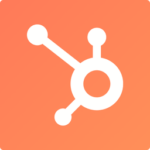



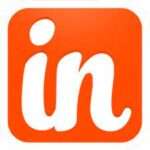
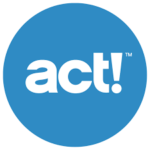
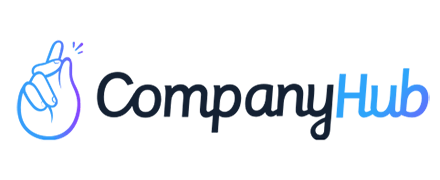
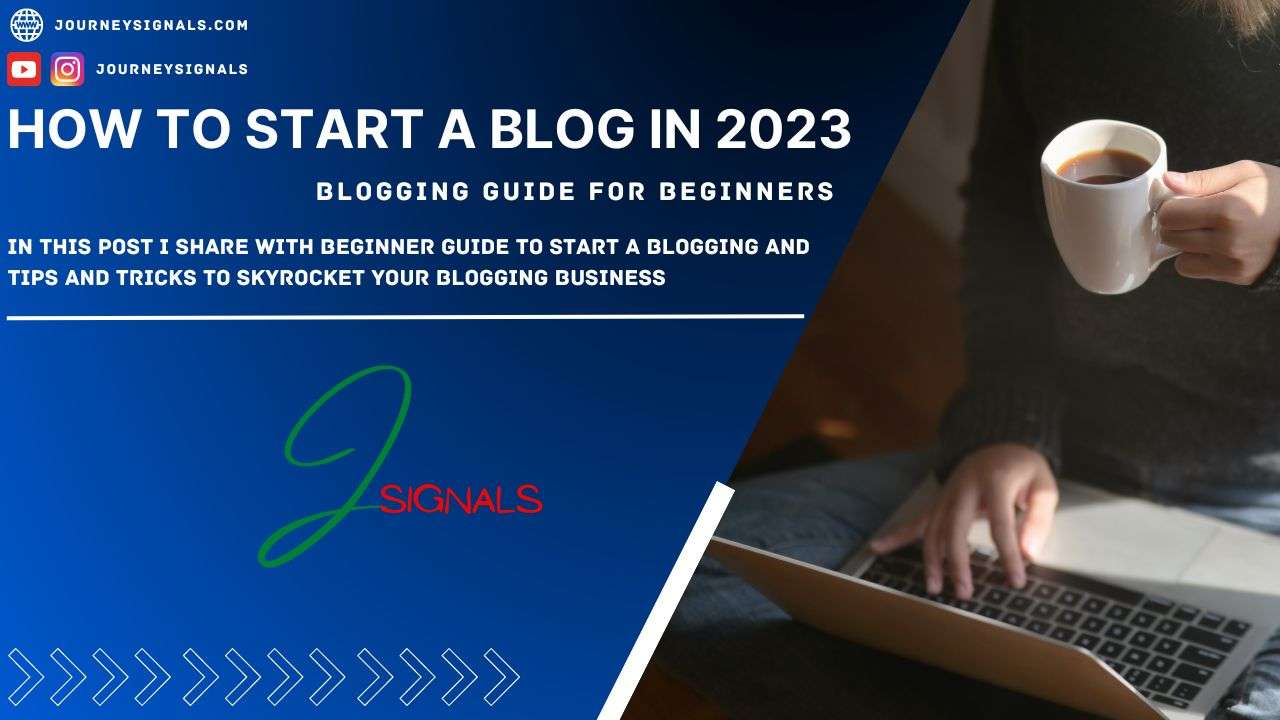






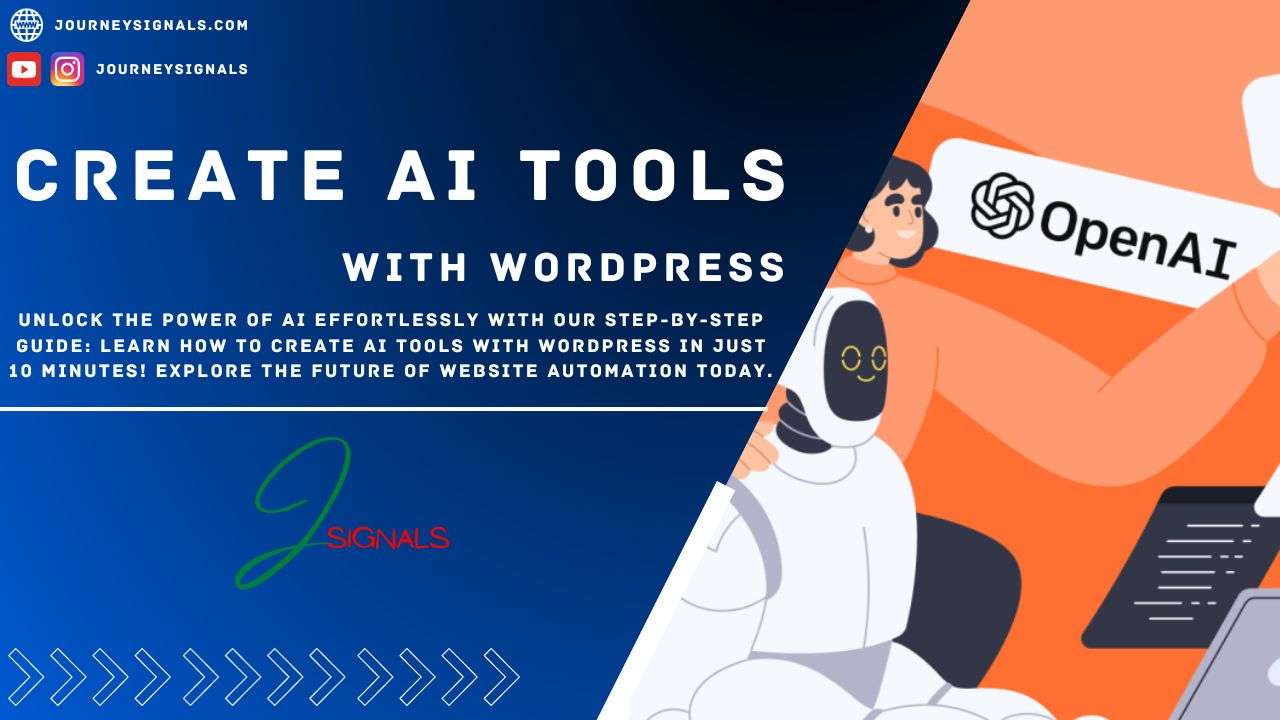




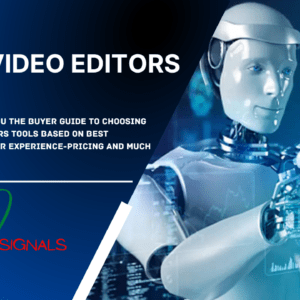

Pingback: 6 Best CRM for Startups & Small Business (2022)
Pingback: How To Really Make Money Online In (2023)-21 Proven Ways
Pingback: 8 Best Sales Management Software Systems of 2023